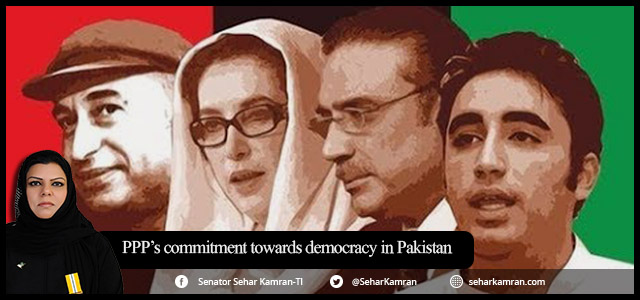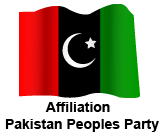 “You cannot defend the soil unless you know the smell of that soil.” –
“You cannot defend the soil unless you know the smell of that soil.” –
Shaheed Zulfikar Ali Bhutto
Pakistan Peoples Party (PPP) has been the torch bearer for advancing civic and social reforms for more than half a century now. Since its inception in 1967, the party has undergone and faced a plethora of challenges, controversies, allegations, and propaganda. It was the first Democratic Party to successfully oppose martial law and introduce democratic norms in Pakistan, setting a precedent for other parties to follow.
Despite the constant propaganda against the PPP leadership being peddled by certain quarters throughout the decades, one thing which has set it apart from others has been the party’s popularity and connection with the masses over the decades.
The narrative of invoking ‘mythologies and tales of time gone by’ can only work for a limited time. The fact that the people of Pakistan have elected the PPP into government five times i.e., 1970, 1977, 1988, 1993 and 2008 is a testament of the party and its leaderships’ relationship with the masses.
A country where political leaders haveintentionally been demonized for decades, where they do not have a level playing field as compared to other institutions,where politics and politicians are seen with contempt, where accountability starts and ends with politicians, where the achievements of politicians are downplayed, it becomes easy for detractors and arm-chair analysts to dismiss and trivialize the sacrifices of political leaders and parties. The holier-than-thou attitude of people is only observed in-regardto politicians, as if every other institution in this country is perfect.
Consequently, it becomes a moral duty to remind people, especially the younger generation from time to time,of national heroes who have not only appeared on the political landscape but made a lasting impact. The ones who laid great sacrifices, with their blood, sweat and tears, to strengthen parliamentary democracy in the country.
Whether it was the 1973 constitution, steps to initiate the country’s nuclear program, 18th Amendment, drawing national consensus to hold the National Finance Commission Award, or conducting the first successful military operation ‘Rah-e-Rast’ in 2009 by uniting the nation.
PPP has many jewels in its crown both on the national as well as province level.In the last decade, in Sindh Province, several significant achievements were made in the domain of health, education, legislation to protect children, women and minorities, infrastructure development, and socio-economic development in Thar. It was only possible for the party to achieve this on the national level because PPP has always been connected to the people.
In Pakistan, it is unprecedented for a political party to survive for 50 years with its founding ideology intact, in true letter and spirit, thereby becoming a true symbol of the federation. Over the last 50 years or so, the PPP’s leadership from Shaheed Zulfiqar Ali Bhutto, Shaheed Benazir Bhutto, and now Former President Asif Ali Zardari and Chairman Bilawal Bhutto has been able to unite the nation on this sensitive issue, and major gains were achieved.The party remains a symbol of progress, hope and perseverance for the masses.
It has become a norm by armchair analysts and keyboard warriors to downplay the achievements and sincere efforts of politicians and political parties for strengthening democracy in the country. Their calls for constitutional supremacy are misrepresented and labelled as personal point scoring.
Selective accountability also plays a key role in furthering this narrative. Undoubtedly, this practice is in full swing in the country and democratic forces from opposition partiesseem to be its main target.It gives the impression that democratic practices are not being allowed to flourish in the country. Selective accountability is a real problem. No political force is against accountability, but when the ruling party’s elites a cabinet memers are given exemption from the said accountability process, it not only makes the whole process dubious, but delegitimizes the institutions upholding the responsibility of accountability.
Politics is not a black and white arena. Most of it takes place in the grey area. The game of political chess is not won by throwing tantrums or bravado, but only by strategizing patiently, according to the situation.
For a bright future of democracy in Pakistan, it is prudent that chosen representatives are given due credit, and selective accountability at the hands of selected people in power, is prevented. This is what the democratic forces of the country under the banner of the Pakistan Democratic Movement are striving for, despite their conflicting ideologies.
PPP, its leadership, and workers have owned their struggles, sacrifices and suffering spanning over 50 years for the sake of this country and its people. History is witness to how the party’s leaders have sacrificed their lives for the cause of democracy, instead of accepting political deals, in their bid to defend and protect the rights of the citizens of Pakistan. The detractors and naysayers can project whatever they want, but history will always remember PPP and its leadership’s commitment towards furthering democracy in Pakistan, in glowing words.
A version of this article is posted on The Daily Times


